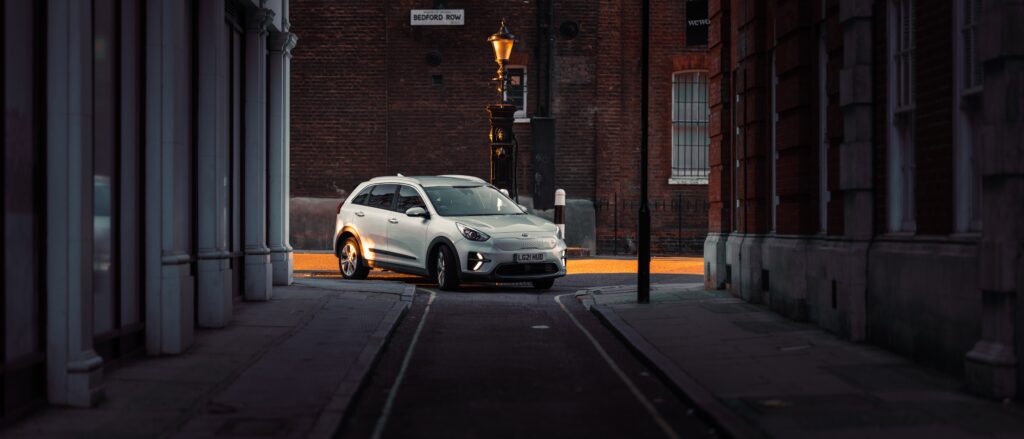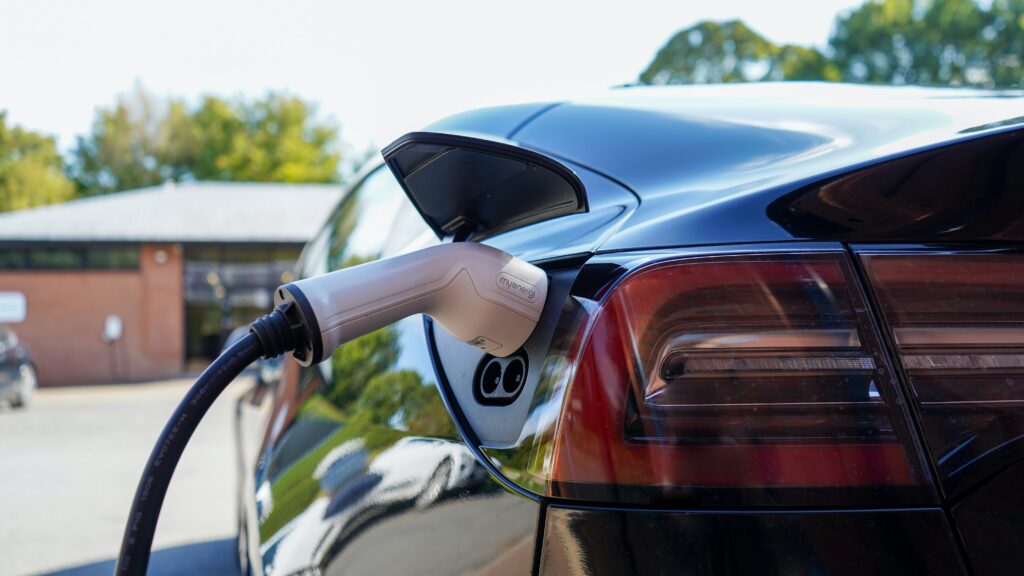Note: The information provided in the article below is correct as of 26th October, 2023.
Car tax or road tax, also known as Vehicle Excise Duty (VED), is mandatory for every car registered in the UK. You need to apply for it in all cases, and the tax is due no matter how much you drive your car. So, even if you have a vehicle that’s parked up unused on a private road or driveway, you need to tax it as normal, or submit a SORN (Statutory Off Road Notification).
Alternatively, you can do a road tax check or if you need to cancel your road tax, you can find out how in our guide to cancelling road tax.
The UK Government announced changes to UK car tax bands in 2022 and 2023. Below we help you find out what tax will be due on your car every year, and the changes you may experience in your future tax rate.

Car tax explained:
- How much car tax should I pay? Car tax bands and rates explained
- Cars registered before 1st March 2001
- Cars registered between 1st March 2001, and 31st March, 2017
- Cars registered between 1st April 2017, and 31st March, 2025
- Cars registered on or after the 1st April 2025
- What is the expensive car supplement?
- What were the recent car tax changes in the UK?
- Is my vehicle exempt from car tax?
- How do I pay car tax online?
- How do I pay car tax by phone?
- How do I pay car tax at the Post Office?
- What should I do if my road tax is going up?
- FAQs

How much car tax should I pay? Car tax bands and rates explained.
How much tax you will pay every year depends on which VED band your vehicle falls into. The UK government has targets it needs to hit with regard to climate change and emissions, so the VED bands are largely based on your vehicle’s CO2 emissions and fuel type.
There are different rates of tax depending on when your car was first registered. This means the first time it was ever sold when new. Even if you’re the second or third owner of your vehicle, it doesn’t change the band your vehicle will fall into. It’s key to do a full check on any used car you purchase, so you know exactly what tax might be due at what times.
Alternative fuel vehicles have separate tax rates. These include hybrids, bioethanol, and liquid petroleum gas (LPG). See the table below to find your tax rate, based on your registration year and level of emissions, both of which should be easily available in your V5C logbook.
The bands are as follows:
Cars registered before 1st March 2001

If your car was first registered before 1st March 2001 then the tax rate is based simply on engine size. There are only two tiers for cars first registered before this date.
The current rate for engines up to 1549cc is £200.00 per year. The current rate for engine sizes over 1549cc is £325.00 per year.
Vehicles from this period that will still be on the road in 2025 are highly likely to be subject to further emissions regulations, as they are likely non-compliant with the UK’s Clean Air Zones (CAZs).
Cars registered between 1st March 2001, and 31st March, 2017
Older cars that were first new between 2001 and 2017 pay a standard VED rate annually based on their emissions.
The pricing goes up with emissions, with standard family cars from this period typically emitting at least 125g/km of C02, and SUVs and other large vehicles emitting even more.
| Vehicle CO2 emissions | Annual tax rate |
| 0 to 100g/km | £0 for EVs, alternative fuel, petrol and diesel |
| 101 to 110g/km | £10 for alternative fuel; £20 for petrol and diesel |
| 111 to 120g/km | £25 for alternative fuel; £35 for petrol and diesel |
| 121 to 130g/km | £140 for alternative fuel; £150 for petrol and diesel |
| 131 to 140g/km | £170 for alternative fuel; £180 for petrol and diesel |
| 141 to 150g/km | £190 for alternative fuel; £200 for petrol and diesel |
| 151 to 165g/km | £230 for alternative fuel; £240 for petrol and diesel |
| 166 to 175g/km | £280 for alternative fuel; £290 for petrol and diesel |
| 176 to 185g/km | £310 for alternative fuel; £320 for petrol and diesel |
| 186 to 200g/km | £355 for alternative fuel; £365 for petrol and diesel |
| 201 to 225g/km | £385 for alternative fuel; £395 for petrol and diesel |
| 226 to 255g/km | £665 for alternative fuel; £675 for petrol and diesel |
| 256+g/km | £685 for alternative fuel; £695 for petrol and diesel |
In 2025, the first band within this tax table for cars registered between 2001 and 2017 will be cut, with all cars emitting fewer than 110g/km of C02 starting to pay the current lowest petrol and diesel rate of £20 in VED per year.
These rates are still subject to change, and since vehicles in this category will be on the older side by 2025, they may end up subject to further charges based on emissions and efficiency compliance.
Cars registered between 1st April, 2017 and 31st March, 2025
Cars that were new brand new since the April 2017 tax year, and until the end of the 2024/25 tax year, pay the following VED rates:
| Vehicle C02 emissions | First year tax rate | Second year+ tax rate | Expensive car supplement |
| 0g/km | £0 | £0 | £0 |
| 1 to 50g/km | £0 for alternative fuel; £10 for petrol and RDE2 standard diesel; £30 for non-RDE2 standard diesel | £170 for alternative fuel, £180 for petrol or diesel | £390 |
| 51 to 75g/km | £20 for alternative fuel; £30 for petrol and RDE2 standard diesel; £130 for non-RDE2 standard diesel | £170 for alternative fuel, £180 for petrol or diesel | £390 |
| 76 to 90g/km | £120 for alternative fuel; £130 for petrol and RDE2 standard diesel; £165 for non-RDE2 standard diesel | £170 for alternative fuel, £180 for petrol or diesel | £390 |
| 91 to 100g/km | £155 for alternative fuel; £165 for petrol and RDE2 standard diesel; £185 for non-RDE2 standard diesel | £170 for alternative fuel, £180 for petrol or diesel | £390 |
| 101 to 110g/km | £175 for alternative fuel; £185 for petrol and RDE2 standard diesel; £210 for non-RDE2 standard diesel | £170 for alternative fuel, £180 for petrol or diesel | £390 |
| 111 to 130g/km | £200 for alternative fuel; £210 for petrol and RDE2 standard diesel; £255 for non-RDE2 standard diesel | £170 for alternative fuel, £180 for petrol or diesel | £390 |
| 131 to 150g/km | £245 for alternative fuel; £255 for petrol and RDE2 standard diesel; £645 for non-RDE2 standard diesel | £170 for alternative fuel, £180 for petrol or diesel | £390 |
| 151 to 170g/km | £635 for alternative fuel; £645 for petrol and RDE2 standard diesel; £1,040 for non-RDE2 standard diesel | £170 for alternative fuel, £180 for petrol or diesel | £390 |
| 171 to 190g/km | £1,030 for alternative fuel; £1,040 for petrol and RDE2 standard diesel; £1,565 for non-RDE2 standard diesel | £170 for alternative fuel, £180 for petrol or diesel | £390 |
| 191 to 225gkm | £1,555 for alternative fuel; £1,565 for petrol and RDE2 standard diesel; £2,220 for non-RDE2 standard diesel | £170 for alternative fuel, £180 for petrol or diesel | £390 |
| Over 255g/km | £2,595 for alternative fuel; £2,605 for petrol and RDE2 standard diesel; £2,605 for non-RDE2 standard diesel | £170 for alternative fuel, £180 for petrol or diesel | £390 |
In the tax year beginning April 2025, cars first registered between 2017 and 2025 will be taxed differently, as follows:
- Zero-emission vehicles will start paying a standard rate of £180 annual VED, losing their discount
- Zero-emission vehicles originally worth over £40,000 will start paying the expensive car supplement if they are still under seven years old, until their seventh year from first registration (e.g. an expensive EV bought new in the summer of 2019 will be liable to pay for one year, whereas an expensive EV bought new in the summer of 2024 will be liable to pay from its second through to its seventh year)
- It’s possible that the current first-year tax rates across all emissions levels change again.

Cars registered on or after 1st April, 2025
From 1st April, 2025, the VED rates for all new cars will be simplified into two categories in the first year, and one standard rate for all cars that’s payable from the second year onwards.
New EVs will start being liable for the expensive car supplement from April 2025 too, losing their green exemption they’ve enjoyed until now.
The following car tax rates can be expected from April 2025:
| Vehicle type | First-year tax rate | Second-year+ tax rate | Expensive car supplement |
| Zero-emission and all battery-electric EVs | £10 | Standard rate £180 | £390 |
| Petrol, diesel, and alternative fuel engine vehicles | Standard rate £180 | Standard rate £180 | £390 |
What is the expensive car supplement?
Vehicles with a list price of more than £40,000 (the advertised price before any discounts) have to pay an additional £390 a year in VED. The tax bands liable for this additional tax are listed in the tables above.
If your vehicle is liable for this extra rate, you will need to pay it for 5 years, starting from the second time the vehicle is taxed. So, years two to seven of vehicle ownership will have higher tax running costs than later years, although the vehicle will likely still be under warranty, keeping maintenance costs low.
This tax will still be due even if the vehicle changes hands within the five-year payable period, so make sure you know if this applies to a used vehicle you are buying.

Is my vehicle exempt from car tax?
Some vehicles aren’t subject to paying any car tax, including:
- Historic vehicles (registered before January 1st, 1974)
- Some recipients of Disability Living Allowance
- Some recipients of Personal Independence Payment
- Some recipients of Adult Disabiliity Payment
- Some receipients of Child Disability Payment
- Receipients of War Pensioners’ Mobility Supplement
- Recipients of Armed Forces Independence Payment
- Vehicles with a valid SORN (Statuatory Off Road Notification)
What were the recent car tax changes in the UK?
In the Autumn Statement for 2022, Chancellor Jeremy Hunt announced that EVs will pay VED from April 2025.
Not only will zero-emission cars and vans start paying road tax at the rate of their petrol counterparts, but hybrid cars will also lose their discount on the annual basic VED rate they pay.
Zero emissions cars registered before 31st March 2017 will pay £20 per year.
The Treasury is introducing this policy because the ratio of EV drivers on the road is increasing steadily as we move towards the electric switchover in 2035.
How do I pay car tax online?

It’s easy to pay your car tax on the Government website. You’ll be prompted to enter your and your vehicle’s details, before given your amount due.
To pay this way, you’ll need the following documents to hand:
- Your V11 form, if you have it available
- Your V5C logbook
- Your SORN notice, if applicable
You’ll be asked for your 11-digit reference, which you can find at the bottom of your V5C logbook on the inside. It will say ‘Doc. Ref. No’ just before your unique 11-digit number.
Follow the steps to proceed to paying your VED online. The cheapest way to pay will always be to pay the whole year’s amount all in one go, but you can also opt for different payment plans.
How do I pay car tax by phone?
If you would like the pay your car tax by phone you can simply call the DVLA’s vehicle tax service on 0300 1234 321. It is a 24-hour service but note it may cost you up to 10p per minute on a landline and from 3p-40p from your mobile. Always check with your provider.
Before the call, make sure you have at least one of the forms mentioned at the start of this section (V11, V5C logbook, or V5C/2) and your car’s VRM (vehicle registration mark) to hand.
You can pay by debit or credit card over the phone but you won’t be able to setup a direct debit. You will need to do this online or in the Post Office.

How do I pay car tax at the Post Office?
Many people prefer to do things the old-fashioned way and pay their VED at their local Post Office. You will need to bring at least one of the forms mentioned at the start of this section (V11, V5C logbook, or V5C/2) with you.
Simply head to your local branch with one of these forms and a member of staff will be able to help. When it comes to paying, you’ve got plenty of options. The Post Office accepts:
Head to Parker’s website and car tax checker page and choose the details that match the car you are interested in from the table, then calculate your car tax.
We’ve gone for the Ford Focus Hatchback (05-11 models), one of the most ubiquitous hatchbacks on the UK market in this example below:
- Direct Debit
- Cheque payable to Post Office Limited
- Debit Card
- Cash (excluding by post)
- Post Office Budget Card
- Postal Order
- Sterling travellers cheques
- Credit Card (£2.50 handling fee)
What should I do if my road tax is going up?

Drivers of older cars will largely not have too much of an increase to their costs when road tax changes come into effect in 2025. However, for EV drivers, as well as drivers of new and low-emission vehicles, the costs of their green choices are going up significantly.
If you can’t keep up with the increased running costs of your car, or you think they might affect your vehicle’s saleability in the future, it’s worth looking into what you could get for your car today. Start with a free, instant valuation based on up-to-the-minute market data by entering your reg on the Motorway homepage or app.
We’ll then ask you a few easy questions about your car and guide you through the photos you need to take to complete your vehicle profile. It can be done right from your phone – in a matter of minutes.
If you choose to enter your car into an online daily sale, it will be shown to our nationwide network of more than 5,000 verified dealers looking to add to their stock of used cars. Interested dealers will then compete to buy your car, offering you their best price.
In as little as 24 hours you will receive your best offer – and, if you choose to go ahead with the sale, your car will be collected for free by the dealer and the money will be quickly and securely transferred to your bank account.
FAQs
What is the DVLA?
DVLA stands for ‘Driver and Vehicle Licensing Agency’. To drive in the UK your car must be registered, and you must be licensed to drive, with the DVLA.
The DVLA is a government agency responsible for collecting VED. It keeps a database of the registration and licensing status of every driver and car on UK roads.
The DVLA issues driving licences and registration certificates. It will also record driver endorsements, e.g. points on your licence and any consequent disqualifications.
It has overall responsibility for collecting car tax and taking action against vehicle tax evaders.
How do I check how much tax to pay on my car?
If you’re as lost as most people are when trying to find out what tax band your car might belong to, don’t fear. TotalCarCheck’s free vehicle check tells you the tax payable on your vehicle, and when the tax is next due. All you have to do is enter your reg on their homepage, and scroll down to see your car’s tax info, MOT status, and much more.
Another alternative way to check your road tax level is by checking Regit. Find out more about how to check your tax status in our guide to running a car tax check.
Do I need to display a car tax disk in my windscreen?
The car tax disk is dead. Since October 1st 2014 you are no longer required to display a tax disc. The DVLA now uses their database to check who has paid and who has not.
What happens if I pay my car tax late?
It’s an offence to leave your vehicle untaxed, and the DVLA will issue you a Late Licensing Penalty (LLP), with a fine of £80. The fine is reduced by half to £40 when you pay within 33 days. LLPs, and all other DVLA fines and penalties in general, get sent to the registered keeper of a vehicle. Depending on what your tax rate is, the penalty could be even higher than your tax due.
This is why it’s crucial to keep your V5C logbook updated when you change your address, so you don’t accidentally collect penalties and fines you’re unaware of.

Need more help?
Need to sell your car, or want to understand more about documentation or maintenance? Check out more of our guides here, covering everything from the paperwork you need when buying and selling, to various notices you may need to file with the UK’s driver and vehicle licensing agency.
- V5C – The ultimate guide to the V5 logbook
- How to sell a car without a V5C
- How to SORN a car
- Euro 6 emission standards and compliance
- What documents do I need to sell my car?
- Is my car insured? How to check your car has insurance
- What insurance group is my car? How to check your car’s insurance group
- Service history – the ultimate guide
- The ultimate guide to electric cars
- Car depreciation guide
- How much does it cost tax an electric car?
